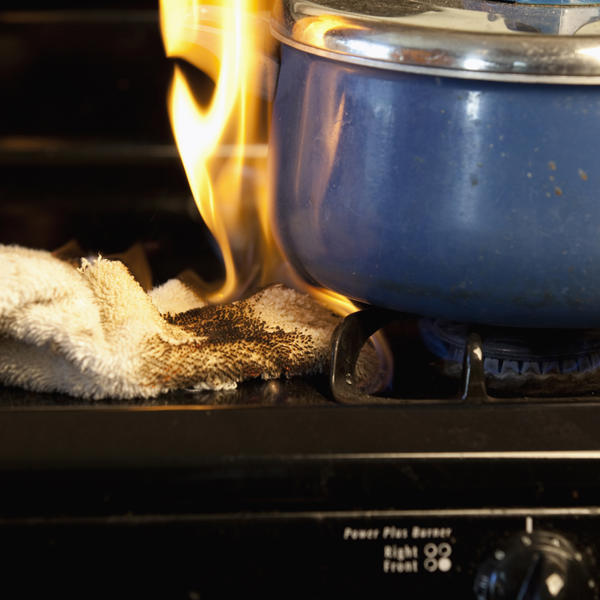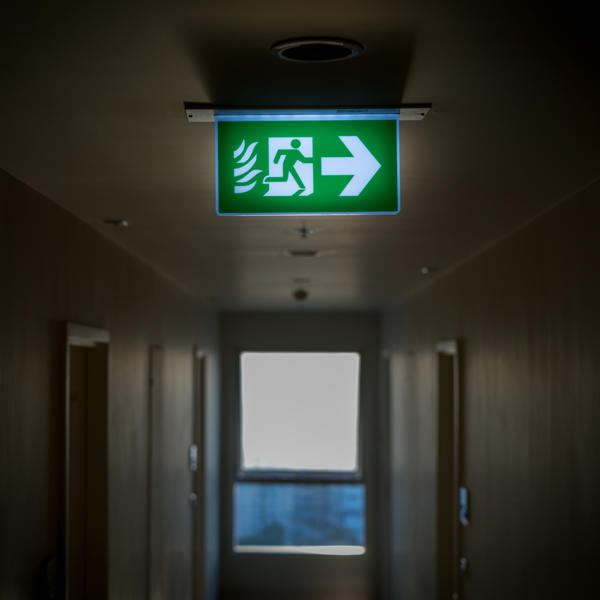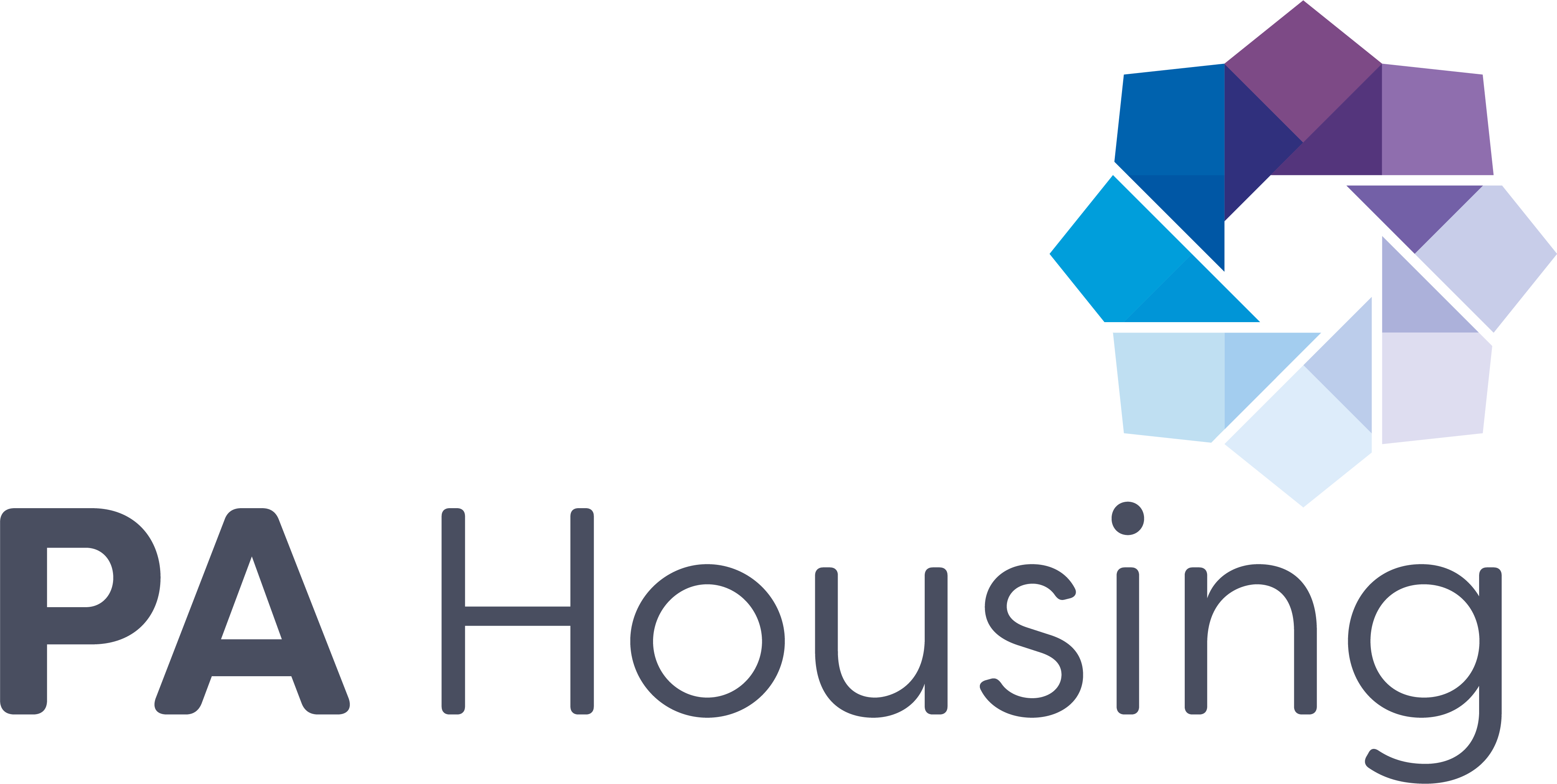We install detection systems that are designed to suit your home and cater for everyone.
If you have particular needs, such as being unable to hear alarms or having mobility challenges, we will work with you to devise a Personal Emergency Evacuation Plan (PEEP) where possible.
Our trained providers carry out regular fire risk assessments to ensure our preventive and protective measures are the best they can be. We update our provision and policies in line with the latest advice from the government and emergency services.
"We want you to be happy and safe at home, so PA Housing does all it can to protect you and your property from fire. You can be sure that prevention and protection measures we provide meet the highest standards, but there are also many things you can do to look after yourself.”
Michael Wright, Deputy Head of Fire Safety

Preventing a fire
Fire safety in communal areas
As your landlord, we have a legal duty to arrange for a fire risk assessment to be carried out on properties in which have shared communal spaces internally, and for it to be kept under review. This does not include individual houses. But there are a few things you can do to help.
Understand the fire strategy for your home
Do you know if you should leave immediately or stay put within your home (where such is a block of flats)?
If you live in a block of flats/apartments, the Fire strategy should be clearly displayed in the communal area in the form of a fire action notice in the entry lobby. If you discover a fire within your OWN house or flat, leave immediately by the safest exit and contact the emergency services.
- Don’t obstruct the communal areas such as the stairs, corridors, and landings with personal items or things that can set fire easily or become trip hazards for others using the route in an emergency. These areas often form the fire escape route for the block.
- Don’t prop open fire doors in communal areas.
- If you see anything in the communal areas that doesn’t belong there, please tell us so we can arrange removal.
- Please make sure that you put all rubbish in the bins provided – don’t leave it lying around in the refuse area as this can easily be set on fire.
Preventing fires in your flat
The best protection from fire is prevention. Remember, most fires in blocks of flats start within the flats themselves, not in the communal areas.
Smoke detectors are the most effective way of preventing fires. They also give vital early warnings and provide extra time to escape in the event of one breaking out. You should check your smoke detector weekly to see if it’s working.
It’s important to check the doors in your flat are in good condition and that they shut properly. Never remove internal doors or wedge them open. Make sure they’re closed at night, and that you know where the keys are kept for the main door. As a landlord of several hundred purpose-built blocks of flats, it's impossible to check all doors every day.
Therefore, it's important that people who visit, live, or work within one of our blocks raise issues with faulty or damaged fire doors. This will help us to keep everyone safe.

How to stay safe
Please do not wedge open fire doors or remove self-closing devices; these doors are to prevent fire from spreading. In the event of a fire, follow the advice on your emergency plan. Report any faults you notice such as missing or damaged strips around the edges, doors not closing correctly.
Faulty electrics (appliances, wiring and overloaded sockets) cause around 6,000 fires in the home across the country every year. Don’t ever plug in too many appliances to the same socket. Try to keep one plug to one socket. Certain appliances, such as washing machines, must have a single plug to themselves, as they are high-powered.
Communal electrical points should not be used to charge battery items such as scooters, bikes, mobility scooters or cars.
Electric cars should only be charged via a dedicated car charging point, where installed for communal use.
Your home should have at least one smoke alarm at each level and you should check it regularly. You’re four times more likely to die in a fire if you don’t have a smoke alarm that works. There are several different kinds, but most have an obvious test button. If your alarm doesn’t work when you test it, let us know. A working smoke alarm could save your life.
Never remove the batteries from your smoke alarm unless it is to change them.
All communal spaces are No Smoking and it is against the law to smoke in such spaces
Every six days someone dies from a fire caused by a cigarette. Stub cigarettes out properly and dispose of them carefully. Put them out. Right out! Use a proper ashtray – never a wastepaper basket. Keep matches and lighters out of children’s reach.
Take extra care if you smoke when you’re tired, taking prescription drugs, or if you’ve been drinking. Never smoke in bed. You might fall asleep and set your bed or sofa on fire.
.
Two fires a day are started by candles.
Keep them away from flammable materials like curtains. Put candles out when you leave the room, and make sure they’re put out completely at night. Keep pets away, and don’t leave children alone with lit candles.
Around half of home fires are caused by cooking accidents.
Follow some simple rules to stay safe. Take care if you’re wearing loose clothing – they can easily catch fire. Keep tea towels and cloths away from the cooker and hob. Don’t leave children on their own in the kitchen. If you have to go to another room, turn off the heat and move the pan to a cool ring. When you’re done, make sure you switch off the cooker.
Take extra care when frying. Never leave a chip pan unattended. If the oil starts to smoke, turn off the heat and leave it to cool. If your chip pan catches fire, don’t throw water on it.
Don’t take risks: turn off the heat if it’s safe to do so, leave the kitchen, close the door behind you, and call 999.
Furniture is to be kept to an absolute minimum, and fire-resistant tags should be attached where possible. Storage of combustible items is prohibited, including but not limited to Privacy Garden Screens, BBQs, Wood Burners, Canisters etc.
Summer may be drawing close, but a reminder that if you’re using barbeques in your own garden, to please do so safely. Allow hot coals to cool before disposing of them, and never light a BBQ on a balcony, roof terrace, or in a communal green space – especially in dry weather.
Most importantly, stay safe
Your priority if there is a fire is to stay safe. If you can smell smoke, hear, see, or feel the heat of a fire, leave the building immediately if you can. Shut doors behind you and call 999 as soon as you’re safe. If you can’t leave or think it would be unsafe, call 999





